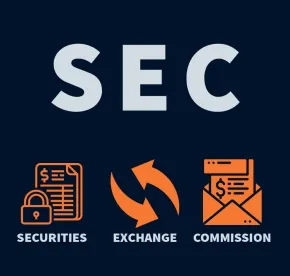U.S. Securities and Exchange Commission (SEC) Chair Gary Gensler has had a very active regulatory agenda that has invited a lot of controversy due to both its ambitious scope and the speed of implementation. While there are numerous issues that are planned to be raised or addressed, many can be loosely grouped into several thematic buckets (e.g., environmental, social and governance (ESG) issues). One such bucket on which the SEC has placed particular emphasis recently is investor protection. SEC concerns regarding investor protection issues have come in many forms under Chair Gensler: digital assets, payment for order flow and special purpose acquisition companies. Most recently, it came in the form of shareholder voting rule changes.
PROXY RULES AMENDMENTS REVERSING 2020 CHANGES ADOPTED
On 14 July 2022, the SEC voted 3–2, along party lines, to adopt amendments to the proxy rules governing proxy voting advice that the SEC adopted in 2020. The final rule adopting the amendments (Final Rule) is available here. The SEC also published a corresponding Fact Sheet, which is available here.
On 22 July 2020, the SEC established new requirements for proxy voting advice businesses (PVABs), which are entities that help shareholders exercise their right to vote on matters at issue in the public companies they own by providing advice according to predetermined policies and facilitating the vote execution process. Requirements added in 2020 include the two conditions in Rule 14a-2(b)(9)(ii): (1) that registrants that are the subject of proxy voting advice have such advice made available to them in a timely manner, and (2) that clients of PVABs are provided with a means of becoming aware of any written responses by registrants to proxy voting advice. PVABs had to meet these conditions to qualify for certain information and filing exemptions.
The Final Rule rescinds Rule 14a-2(b)(9)(ii) and related safe harbors and exclusions. The SEC concluded that the potential informational benefits the conditions in Rule 14a-2(b)(9)(ii) provided to investors did not sufficiently justify the risks they pose to the cost, timeliness, and independence of proxy voting advice. The Final Rule also rescinds supplemental guidance that was issued in 2020 to investment advisers regarding their proxy voting obligations, which was prompted, in part, by the SEC’s adoption of Rule 14a-2(b)(9)(ii).
In 2020, the SEC had also amended Rule 14a-9, which prohibits false or misleading statements, to add Note (e), which provided examples of misleading material misstatements and omissions related to proxy voting advice. The SEC concluded that Note (e), which was intended to help clarify the liabilities of proxy voting advice, had caused more confusion.
Republican Commissioner Hester Peirce stated that there was “little justification” to “change course” on the proxy rules governing proxy voting advice “so dramatically.” She quoted feedback received during the “proposal’s brief comment period” that exhibited how commenters “were baffled by the ‘regulatory whiplash’”:
We find it difficult to understand the Commission’s decision to propose amending the proxy solicitation exemption qualification requirements prior to having any data on their actual impact or cost. . . . It is not possible to conduct an economic or cost benefit analysis for a rule that has not gone into effect, and the decision to amend a finalized rule without such data may have the unintended consequence of establishing an undesirable precedent impacting regulatory stability going forward.1
She stated that the comment letters received in support of the Final Rule did not include any new information, but simply “reiterated concerns that commenters had raised during the prior rulemaking process.” She stated that she was concerned that the SEC would lose credibility as an independent agency if its regulations “so drastically swerve from one year to the next.” Such changes, she warned, may make people wonder “whether the GPS [the SEC is] using is calibrated to respond to political rather than market signals.”
Republican Commissioner Mark Uyeda raised the same concern, stating that “this regulatory seesaw does not reflect administrative ‘best practices’ that promote long term reliance and confidence by market participants in the stability of…securities regulation.” Notably, Commissioner Uyeda also highlighted issues with the Final Rule’s comment period. First, Commissioner Uyeda noted that the comment period was only 30 days, instead of 60 days, which is the amount of time given for public comment on executive orders and is the amount of time recommended by the Administrative Conference of the United States for “significant regulatory actions.” Second, Commissioner Uyeda noted that comments were due on 27 December 2021, meaning that the 30-day period overlapped with major holidays, including Thanksgiving, Christmas, Hanukkah, and the beginning of Kwanzaa. Moreover, this was the first holiday season since the rollout of the COVID-19 vaccines. Third, the comment period occurred at a time when many public companies with calendar year-end fiscal years were preparing and auditing their financial statements, making it an inopportune time to evaluate and comment on the amendments.
Democratic Commissioner Allison Herren Lee responded that it is “appropriate for the [SEC] from time to time to evaluate its rules and, where appropriate, make adjustments that reflect [the agency’s] best knowledge and judgment.” She stated that reevaluations could “occur after many years, and sometimes after only a short time,” noting that the SEC had, in fact, “changed course with respect to rules that had been on the books a very short time in 2018, 2019, and 2020.”2 She stated that the SEC should “continue to re-evaluate rules when it has well-substantiated reason[s] to do so.”
SEC Chair Gary Gensler’s statement on the Final Rule is available here. Commissioner Lee’s statement is available here. Commissioner Peirce’s statement is available here. Commissioner Uyeda’s statement is available here. Commissioner Caroline Crenshaw’s statement is available here.
SEC PROPOSES REVISING SHAREHOLDER PROPOSAL RULE
On 14 July 2022, the SEC voted 3–2, along party lines, to propose a rule (Proposed Rule) adopting amendments to Rule 14a-8 (also referred to as the Shareholder Proposal Rule), which requires companies subject to the federal proxy rules to include qualifying shareholder proposals in their proxy statements. The Proposed Rule is available here. The SEC also published a corresponding Fact Sheet, which is available here.
The Proposed Rule revises the substantial implementation, duplication, and resubmission bases for excluding shareholder proposals. Specifically, the substantial implementation exclusion would be amended to specify that a proposal may be excluded if the company has already implemented the essential elements of the proposal. The duplication and resubmission exclusions would be amended to reference when a proposal substantially duplicates another proposal, which occurs when a proposal addresses the same subject matter and seeks the same objective by the same means as a prior proposal. The SEC believes that the revisions provide greater clarity as to when these bases for exclusion would apply to a particular shareholder proposal.
Commissioner Peirce raised two notable critiques. First, she noted that the SEC amended Rule 14a-8 less than two years ago “and [has] yet to experience a full proxy season with these changes in effect.” She stated that “a better approach would be for the [SEC] to allow sufficient time to see how [the] 2020 rules operate, and then review the results to determine whether further changes are appropriate.” Second, Commissioner Peirce stated that the Proposed Rule’s new substantial duplication test would “defang” the duplication and resubmission exclusions. She stated that shareholder proposals would not be excluded under this new test “unless [they] are seeking exactly the same things.” She stated that “the likely result…is multiple potentially overlapping or even conflicting proposals on the same topic on the same proxy.” Commissioner Uyeda raised the same concerns. He also raised the issue that the Proposed Rule would create “an uneven playing field for U.S. public companies” relative to foreign companies and U.S. private companies that are not subject to the federal proxy rules.
Chair Gensler’s statement on the Proposed Rule is available here. Commissioner Lee’s statement is available here. Commissioner Peirce’s statement is available here. Commissioner Uyeda’s statement is available here. Commissioner Crenshaw’s statement is available here (the link is the same as her statement on the Final Rule; please scroll to the bottom, to the section titled “Proposed Amendments to 14a-8”).
Comments on the Proposed Rule are due on 12 September 2022.
ADDITIONAL INFORMATION
Additional information on the 2020 amendments are available in our previous client alerts on the matter, which are available here (SEC Issues New Guidance for Investment Advisers on Proxy Voting, published 26 September 2019); here (SEC Proposes Rules to Curb Shareholder Proposals, Limit Proxy Voting, published 8 November 2019); and here (SEC Adopts Final Rules on Proxy Voting Advice, published 27 July 2020).
NEXT STEPS
Chair Gensler will continue to focus on implementing his ambitious regulatory agenda for the SEC, including the adoption of a final rule revising the Shareholder Proposal Rule. However, as the Republican Commissioners seemed to indicate in their statements, there may be precedent to re-reverse the policy reversions implemented by Chair Gensler in the near future. The results of the midterm elections could also have a significant impact on the future efficacy of Chair Gensler’s regulatory agenda. K&L Gates’ Public Policy and Law professionals are ready to assist stakeholders as they engage in this critical policy dialogue.
FOOTNOTES
1 Letter from Ani Huang, President and CEO, Center on Executive Compensation to Vanessa Countryman, Secretary, SEC (Dec. 23, 2021) at 1–2.
2 See, e.g., Proposed Rule Amendments and Guidance Addressing Cross-Border Application of Certain Security-Based Swap Requirements, Proposed Rule, Release No. 34-85823 (May 10, 2019) (proposing to amend recently adopted provisions relating to the cross border application of certain security based swap requirements prior to their compliance date in response to “market participants and other commenters [who] have raised concerns regarding possible disruptive effects of the above requirements, suggesting that the requirements would create significant operational burdens and impose unwarranted costs”); Investment Company Liquidity Disclosure, Proposed Rule, Release No. IC-33046 (Mar. 14, 2018) (proposing to amend recently adopted provisions governing fund liquidity disclosure prior to their compliance date, noting that “we have received letters raising concerns that the public disclosure of a fund’s aggregate liquidity classification information on Form N-PORT may not achieve our intended purpose and may confuse and mislead investors” and that “these letters have caused us to question whether the current approach of disclosing aggregate liquidity fund profiles through Form N-PORT is the most accessible or useful way to facilitate public understanding of fund liquidity”); see also Disclosure of Payments by Resource Extraction Issuers, Final Rule, Release No. 34-90679 (Dec. 16, 2020) (reversing course on a host of provisions recently adopted by the Commission, when, by the Commission’s own reasoning in the adopting release, such reversals were not necessary under the Congressional Review Act disapproval of the recently adopted rule); Allison Herren Lee, Statement on Rules Governing the Disclosure of Payments by Resource Extraction Issuers (Dec. 16, 2020) (“The adopting release contends that the change in project definition alone would satisfy the CRA. Nevertheless the final rule reverses course on a host of other significant features of the 2016 rule, all of which will reduce transparency. These changes will reduce the number of companies required to disclose, reduce the amount of disclosure, reduce the liability that attaches to the disclosure, and reduce the promptness of the disclosure. At proposal, these changes were premised on Congressional concerns about compliance costs and anti-competitive effects. But since we have abandoned that rationale—and the release reasons these changes are not required to satisfy the CRA—it is not clear that we have any reasonable basis for these additional reversals from the Commission’s well-reasoned 2016 position.”).
Lauren E. Hamma also contributed to this post.








 />i
/>i

